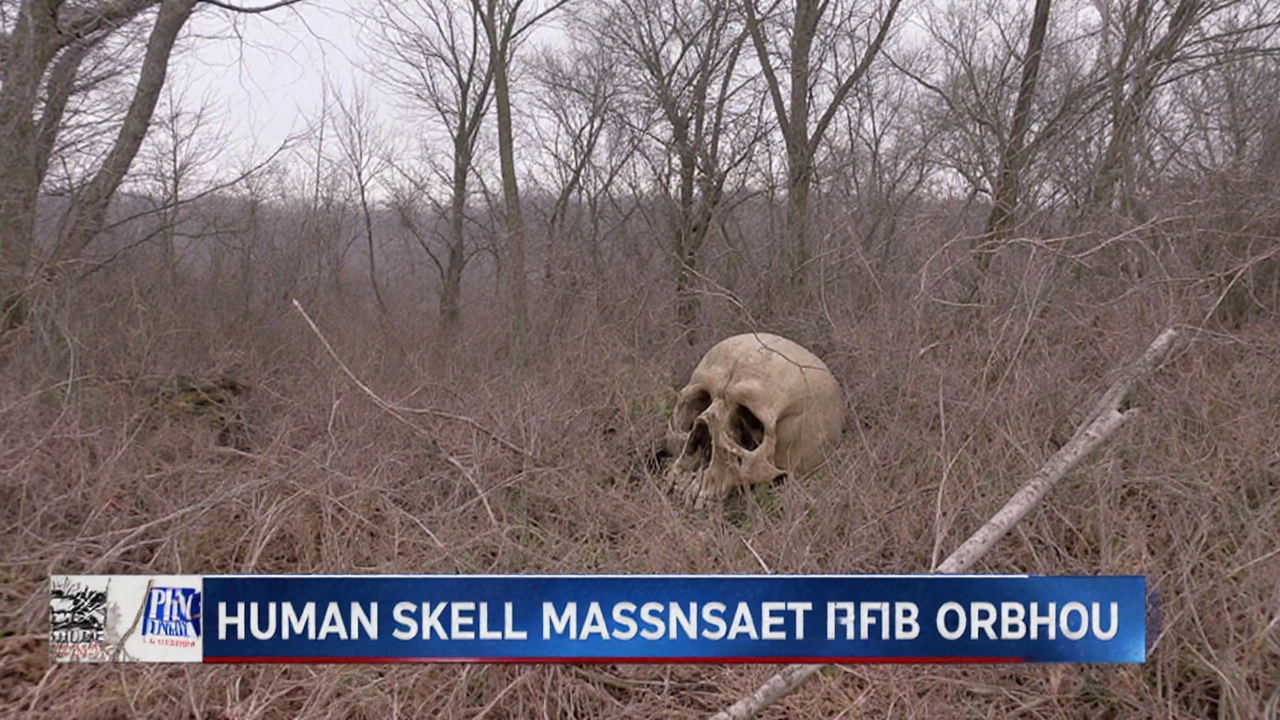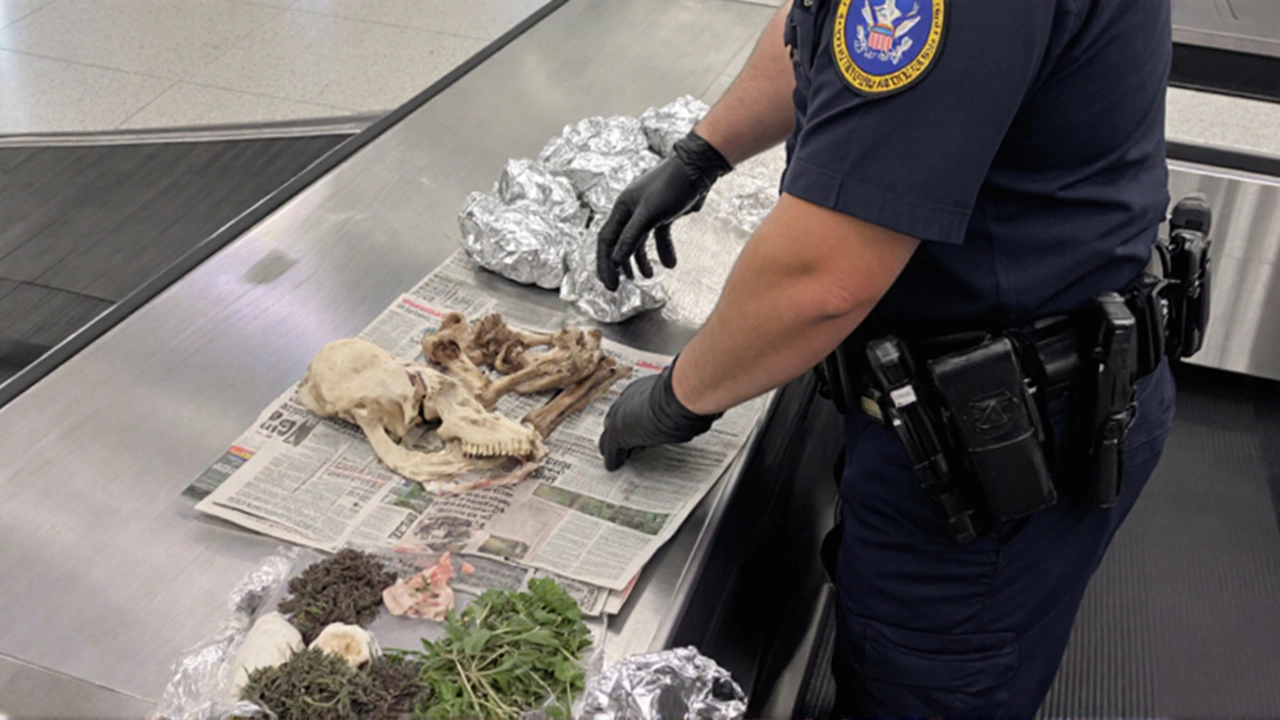27 Sep 2025
- 0 Comments
How the Discovery Unfolded
It started like any other day at Tampa International Airport. A traveler walked up to the customs desk, declared ten cigars, and handed over his luggage for the standard scan. CBP agriculture specialists, however, flagged the bag because it contained plants that aren’t allowed in the U.S. and a few undeclared items. That extra scrutiny opened the door to what turned out to be a shocking find.
When officers opened a second duffel hidden inside the main suitcase, they saw it wrapped in aluminum foil. Inside were fragments that looked like bone, including a portion of a skull and several vertebrae. Officers in gloves lifted the pieces, placed them in evidence bags, and photographed the scene. The images, later shared by CBP Director Carlos C. Martel on social media, showed the skull and bones still partially wrapped, a visual that quickly went viral.
The passenger, whose identity has not been released, told agents the remains were intended for a ritual use. CBP officers noted that regardless of the claimed purpose, the items posed serious health risks – exposure to bone tissue can spread disease, and the unregulated transport of human tissue is illegal under U.S. law. The remains were ordered destroyed, and a federal investigation is now underway.

Legal Rules and Health Concerns
Transporting human remains into the United States is tightly controlled. CBP requires a certified death certificate, and if that document isn’t in English, an official translation must accompany it. Even with paperwork, permission is rarely granted; the agency looks at public health, biosecurity, and the purpose of the shipment before approving anything.
In this case, the traveler had none of the required documentation, making the cargo illegal from the start. Health officials stress that bone fragments can harbor pathogens such as anthrax or other bacterial spores, making them a biohazard. That’s why CBP agents treat any unmarked human tissue as a potential threat and move quickly to neutralize it.
Violations can lead to criminal charges ranging from smuggling to violations of the Public Health Service Act. Past cases have seen individuals fined, detained, or even prosecuted for trying to bring unapproved remains into the country. The investigation at Tampa will likely look into the traveler’s background, possible connections to ritual groups, and whether any other prohibited items were hidden.
Martel’s social‑media post added a note of dark humor – “we never know what baggage may hold, but smugglers should know we’ll always have a bone to pick.” While the comment lightened the mood, it also underscored the seriousness of the job. Customs officers handle everything from exotic fruits to firearms, and incidents like this remind travelers that the rules apply to every item, no matter how small or seemingly harmless.
For anyone planning to travel with personal belongings, the takeaway is clear: declare everything, follow the paperwork requirements, and never assume a foil‑wrapped bag will go unnoticed. The Tampa case adds to a long list of unusual finds—live animals, illicit drugs, and even counterfeit money—showing that “routine” inspections can turn into headline‑making moments at any time.
